How to winterize a pressure washer – pros reveal 5 simple steps to stop your pressure washer from freezing
These expert tips make it easy to winterize a pressure washer


A pressure washer is the perfect way to blast dirt off a path, deck, or wall.
But pressure washers use a lot of water and gas, and if either liquid freezes in the winter the ice will expand and crack the material. In some cases, this can cause irreparable damage to the appliance.
I spoke to two pressure washer experts about the best ways to winterize a pressure washer so it's ready to be used in spring.
1. Shut off the fuel valve
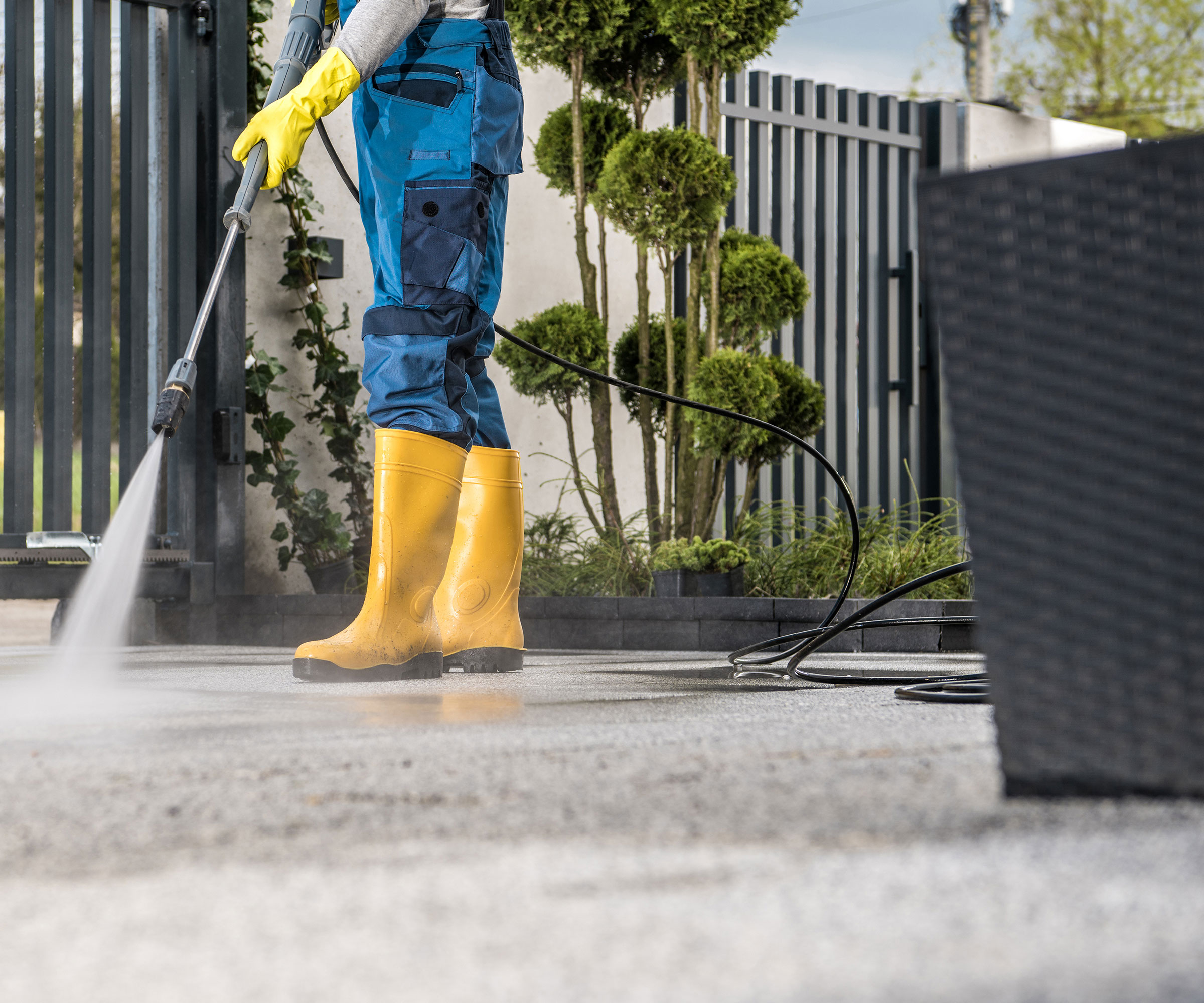
The first thing to do is to shut off the fuel valve. Pressure washer expert Daniel Check says 'Consult your owner's manual to see if you have one, and use your fuel shut-off switch as instructed if you do.'
Pressure washer pro Scott Paul adds this is easy to find. 'There is a small knob in the gas line that you can set to 'off' by turning clockwise. This can usually be found near the engine.'
After that, Scott says 'Make sure you let the engine run until it stops to use up all the remaining fuel in the carburetor.' This removes all the fuel from the lines so no liquid will freeze and crack the pressure washer.
Daniel Check is the owner of Double Check Pressure Washing, a residential and commercial pressure washing company in Wilmington, North Carolina. Daniel has been pressure-washing homes for over a decade

Scott has worked in pressure washing and exterior wood since 1993. He has founded and runs several pressure washing and exterior wood protection businesses, including his most recent, DeckStainHelp.Com.
2. Drain the gas
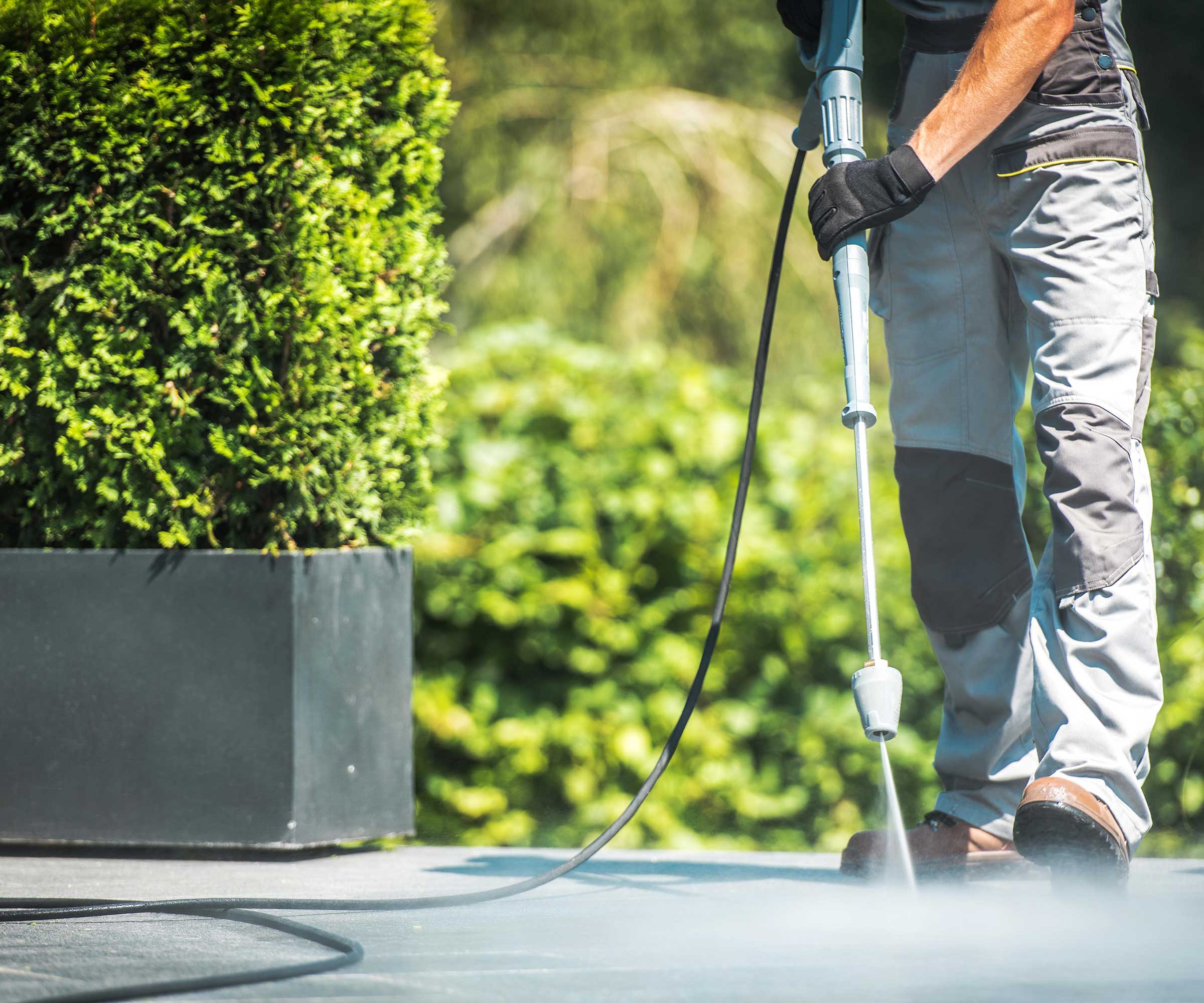
With that accomplished, you need to remove the gas from the tank. Daniel Check says 'Some gas pressure washers have an auxiliary tank that you could invert with a funnel and put into a gas can.'
However, it's more common to have a small gas engine that you can't empty. Scott Paul says 'You can use a hand siphon to safely remove gas, but the most common method is to just let the engine run throughout the season until you come to its end.'
3. Add fuel stabilizer
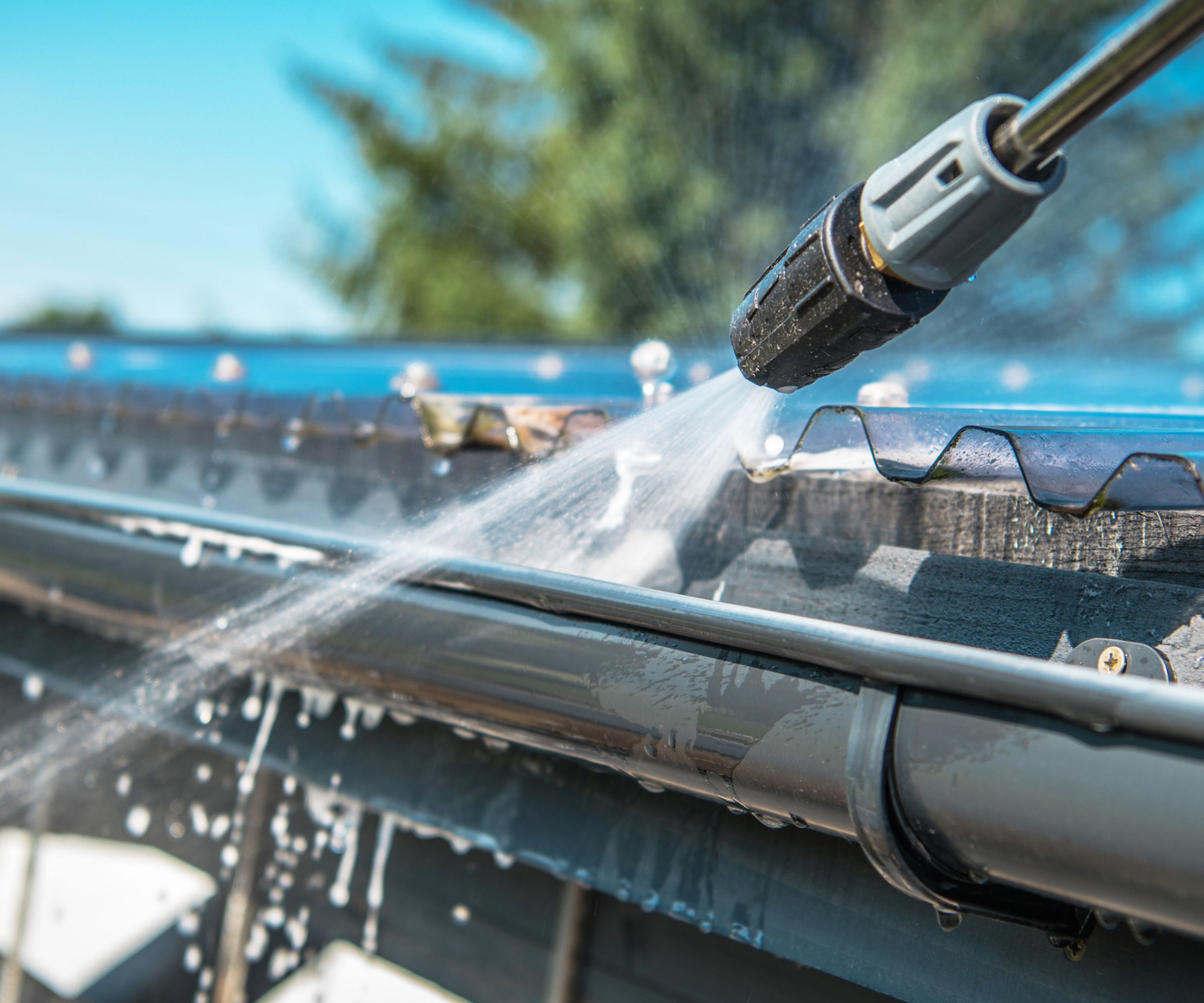
Daniel Check says 'Some pressure washers don’t have a shut-off valve, so you either need a fuel stabilizer or run it until it runs out of fuel.'
He explains that 'Fuel stabilizers prevent old fuel from spoiling or gumming up. Bad fuel will crud up the moving pieces and make it feel like chewing gum is stuck in your pressure washer when you try to crank it on.'
Thankfully, it's easy to add. Scott Paul says all you need to do is 'Mix the stabilizer with fresh gas and run the engine for 2-3 minutes to let it run through the symptoms.'
4. Leave the oil alone

Some experts suggest changing out the oil as you winterize. However, Daniel suggests that you can leave it. 'Do an oil change when you are ready to begin your season. There's no point in doing a fresh oil change at the end of the season.'
The idea here is that your pressure washer won't be getting any use in winter, so you might as well wait until heavier use in spring to freshen up the oil.
5. Add antifreeze

In the coldest parts of the country, you may need to add antifreeze to your pressure washer. Scott Paul says 'Add antifreeze to your water line and fuel pump if it's stored in cold temperatures, and do your best to store the machine in a dry place that will provide protection from the elements.' Antifreeze like this at Walmart is easy to find and inexpensive.
Daniel Check gave me a slightly different tip, however. 'You can use antifreeze, and we used to, but it really isn't a safe chemical. You don’t want to spill it, accidentally touch it, or get it on the ground. The safer alternative is to use windshield wiper fluid that is rated for winter temperatures. It is a safe chemical and does the same preventative thing.' Window wiper fluid is also available at Walmart and other big retailers.
Electric pressure washers
If you have an electric pressure washer, none of the steps to fixing the gas apply. However, it still needs winterizing. You need to run the pressure washer dry so that there's no water in the system that can freeze and break the pressure washer. If you live somewhere especially cold, employ some kind of antifreeze.
Pressure washers aren't the only way to clean, however. There's an easy way to clean patio pavers without a pressure washer using soap and water - or a simple homemade white vinegar solution.
Sign up to the Homes & Gardens newsletter
Design expertise in your inbox – from inspiring decorating ideas and beautiful celebrity homes to practical gardening advice and shopping round-ups.

As a gardens and lifestyle contributor, Alex makes sure readers find the right information to help them make the best purchase. Alex got his start in reviewing at the iconic Good Housekeeping Institute, testing a wide range of household products and appliances. He then moved to BBC Gardeners’ World Magazine, assessing gardening tools, machinery, and wildlife products.
-
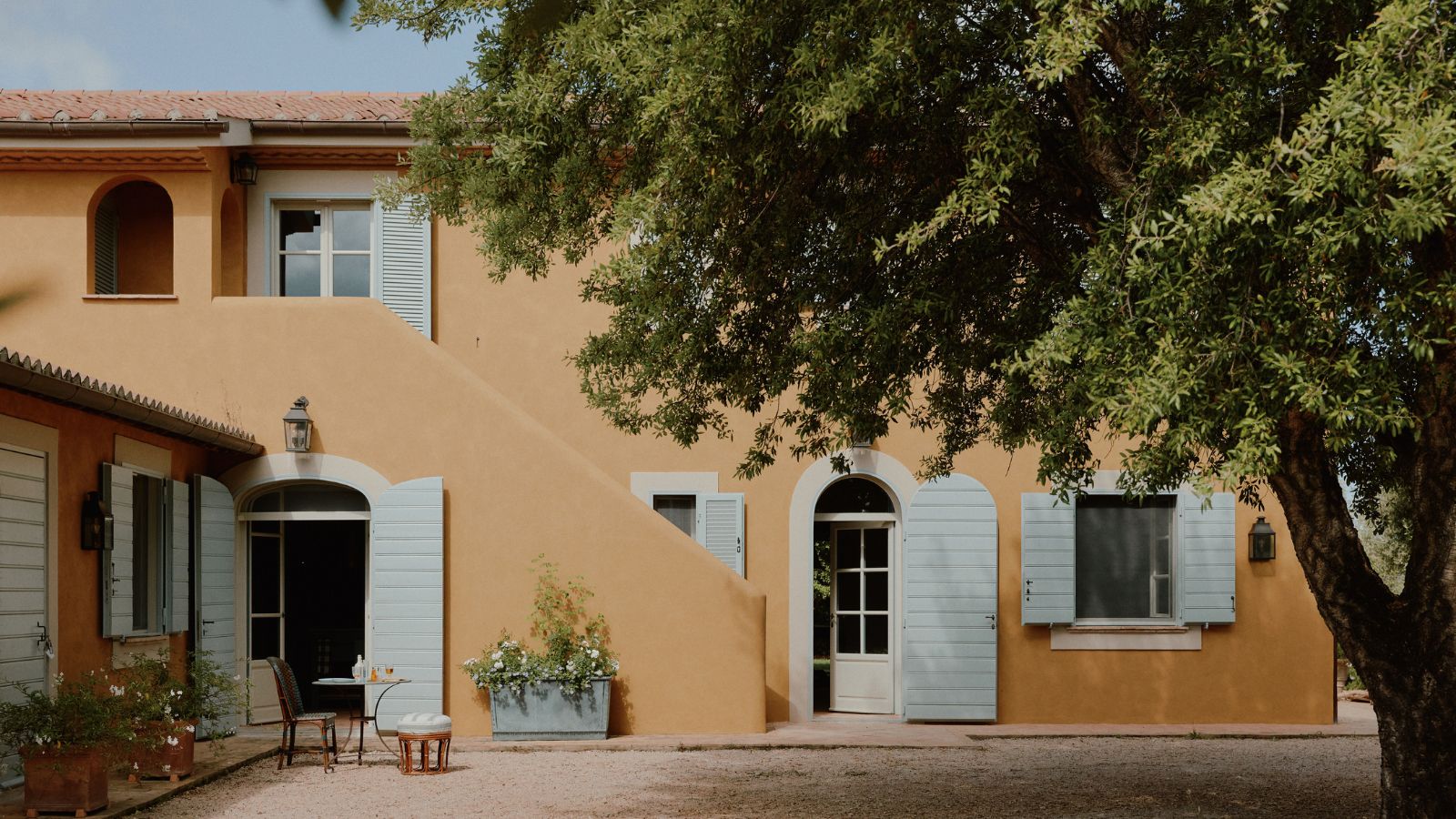 How a British designer brought together the different tastes of a couple wanting to create the dream future-proofed home in the idyllic Italian countryside
How a British designer brought together the different tastes of a couple wanting to create the dream future-proofed home in the idyllic Italian countryside‘They wanted a house that would feel immediately like home the minute they arrived, and somewhere relaxing to spend time together as a family and entertain friends.’
By Fiona McCarthy
-
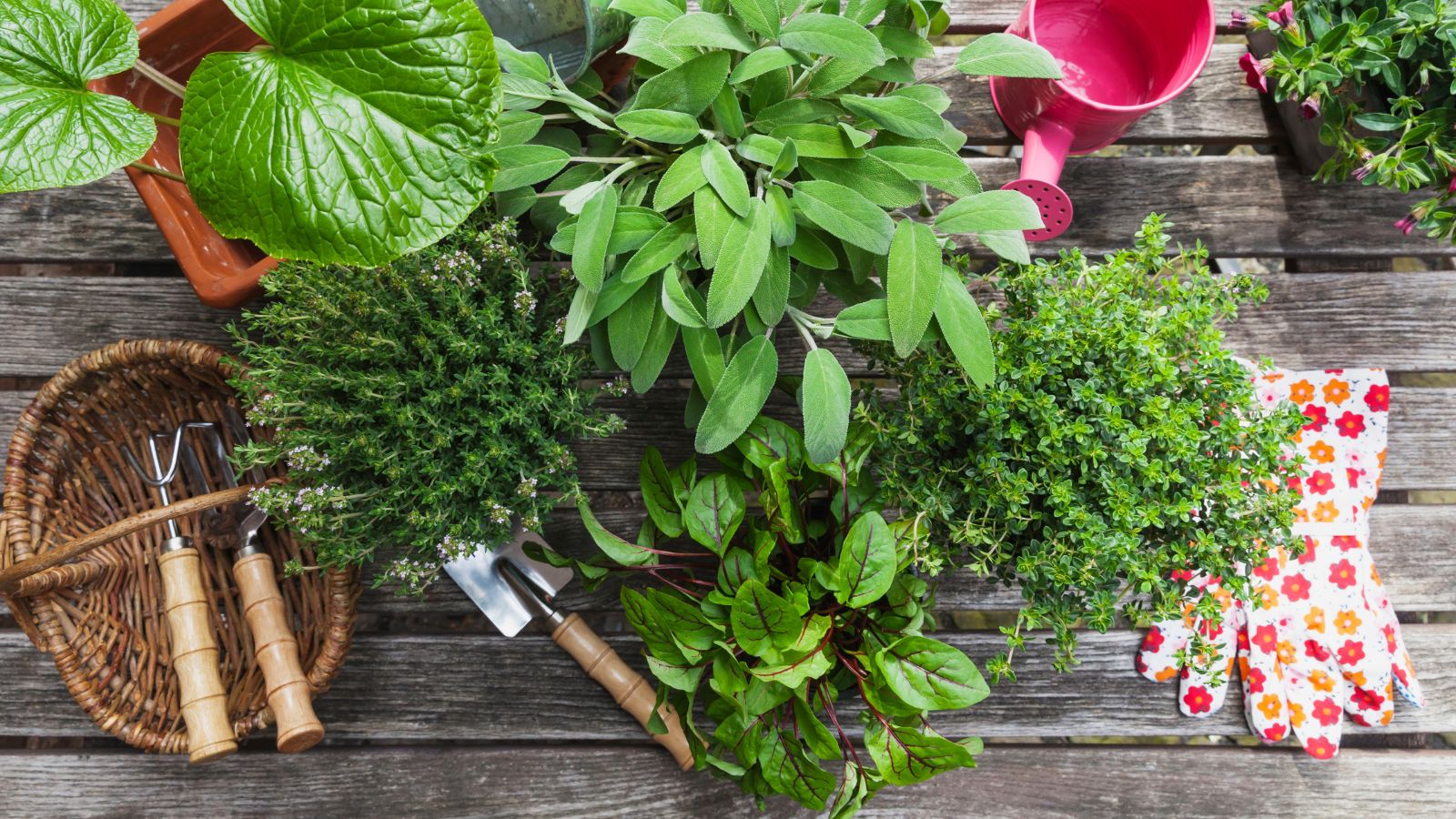 What is your birth month herb? Discover the symbolic meaning behind yours
What is your birth month herb? Discover the symbolic meaning behind yoursHerbs offer symbolic wisdom, and play to the natural rhythms of the season
By Lola Houlton